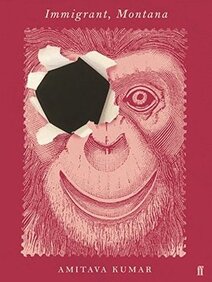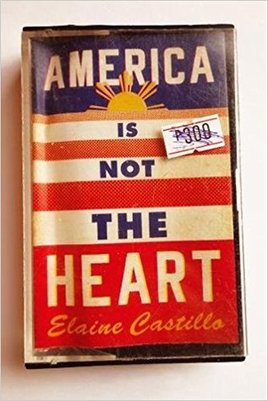Immigrant, Montana by Amitava Kumar
Born and raised near Patna and now a US citizen, Kailash looks back on his late adolescence as a graduate student in New York. There he took classes with a charismatic teacher, also from the same region of India, a critic, expert on post-colonialism, political activist and fierce opponent of the Vietnam – and latterly the Gulf – Wars. (His are the words I’ve quoted above, p295.)
Kailash is intellectually curious, but somewhat unfocused in his approach, his friends in the group of international students several steps ahead of him with publications under their belts while he struggles to finish his thesis. He’s also looking for love – or romance, or sex – but each of his relationships end in disappointment with Kailash failing to meet the woman’s expectations.
The story unfolds in fragments, such that the reader gets to know Kailash as she might a friend, with the inevitable boring bits but without the opportunity to enquire more about the parts that interest her most. (For example, I was gobsmacked to read later in the novel that Kailash had a sister, whom he was with when she was subjected to some unwelcome sexual attention.)
With hints of autobiography, digressions on colonial history and, like The People in the Trees and Disoriental, with footnotes, it’s summed up in an author’s note as “a work of fiction as well as nonfiction, and in-between novel by an in-between writer”. While I didn’t get beneath the surface intellectualism, I appreciated the opportunity to read this unusual novel courtesy of Faber books.
America Is Not the Heart by Elaine Castillo
But now she’s in America with her much-loved uncle Pol and his less welcoming wife. In the Philippines, he was a surgeon and she a nurse, but now he works long hours as a security guard while she is a care assistant doing double shifts. Undocumented, Hero can’t get a proper job but she makes herself useful cleaning the home despite the pain in her crippled hands. Soon she’s taking care of her seven-year-old cousin, Roni, picking up from school and driving her to appointments with traditional healers for the eczema that’s scourged her skin. It’s through one such healer that Hero finds friendship, a cash-in-hand part-time job and, eventually, the love and belonging that will go some way towards salving the wounds festering beneath her own skin.
Thick with cultural references and phrases from (I think) three of the Philippines’ native languages – Tagalog, Pangasinan and Ilocano – America Is Not the Heart is a sprawling story of trauma, migration and recovery, other things that divide people and keep us apart. The political and historical perspective was a welcome, if occasionally confusing, education for someone whose main factoid about the country was Imelda Marcos’ thousands of pairs of shoes. I now recognise the importance of eating pancit – a dish made from rice noodles – on one’s birthday, even if I can’t say why.
As in Speak No Evil and Disoriental, the protagonist’s life in the West is overshadowed, not only by the racism of the host community, but the homophobic culture of their roots. Elaine Castillo writes with a refreshing frankness about sex between women, as well as the frustrations of trying to masturbate with a damaged hand. She also doesn’t shirk from the snobbery and class stratifications of Filipino society which survive migration to the US.
This is a big book in both length and ambition, which suffers slightly from an attempt to cover too much. But nevertheless an impressive debut; thanks to Atlantic books for my review copy.























 RSS Feed
RSS Feed





















